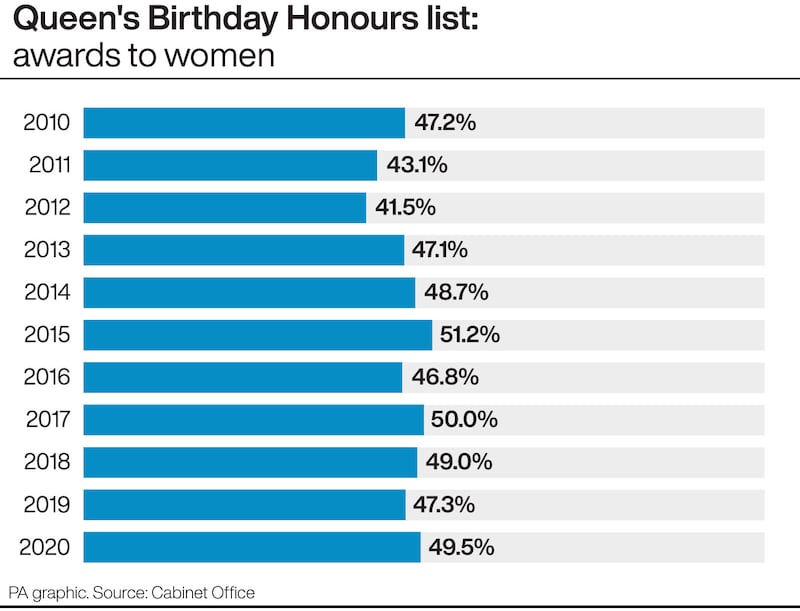A former chief scientific adviser for Scotland has encouraged women to enter science and engineering fields as she was made a dame in the Queen’s Birthday Honours list.
Professor Muffy Calder, vice principal and head of the College of Science and Engineering at the University of Glasgow, has been made a Dame Commander of the Order of the British Empire.
She was recognised by the Queen as a “tireless advocate for science and an inspirational role model for future generations of scientists and for women in science”.
Prof Calder, 62, was born in Canada but has lived most of her life in Scotland.
She received notification of her award by email in May, initially thinking it was meant for someone else.
“I couldn’t believe it,” she told the PA news agency. “I got out my camera and took a photograph. It was like, have I imagined this? I’m so surprised and so pleased, and also a little bit embarrassed as well.”
A leading researcher in computer science, Prof Calder said her field is a great community to work in, adding that it is important for more women to be encouraged to enter scientific disciplines.
“Why not? Just do it,” she said. “It is really clear diversity is good in all walks of life. The way I see it, I’ve been a scientist – and then I happened to be a woman.”
She said the key to getting more people to pursue careers in science and engineering is to “show everybody how interesting the subject is”.
She added: “It is so rewarding, it is so interesting, it is the most creative thing you can do.”

The coronavirus pandemic, she said, highlighted the value of science, with “the way the engineering community have come together to develop new cheap ventilators” and with businesses retooling to produce personal protective equipment.
She added: “Can you imagine if this (pandemic) had happened 20 years ago? Without email and without all this software infrastructure? And it’s all because of research ideas – nobody was planning this software for this scenario.”
Prof Calder was previously made an OBE, and she admitted with embarrassment that it is currently “at the back of a cupboard”.
She added: “I’m not entirely sure where – somewhere safe.”
She credited her university with providing a platform for her success.
“My success is because of Glasgow University,” she said. “It has been a great place to work. It has really allowed me to flower.”








